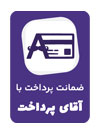Bilingual Glossary
Glossaries
Parents decline ESL services for which children qualify. Students are placed in mainstream programs without ESL support, but, in Ohio, students remain eligible for accommodations on statewide tests and must take the OTELA until exited from the ESL program.
the stages of second language acquisition (Krashen and Terrell, 1984): Pre-production, Early Production, Speech emergence, Intermediate and advanced fluency.
The ability to hear, identify, and manipulate the sequence of individual sounds (phonemes) in spoken words.
The ability to detect or manipulate the sound structure of spoken words, independent of meaning. It is an increasingly sophisticated capability that is highly predictive of a child’s later ability to read.
Developing a degree of communication in a number of languages over a lifetime, not necessarily in a school setting.
The ability to understand and apply social rules for language use. Children who are skilled at pragmatic use or who have communicative competence can use language to persuade peers and adults, ask and answer questions in school, and request entry into a playgroup.
The practice of children talking aloud to themselves while engaged in play.

 Persian
Persian  English
English  Arabic
Arabic 



